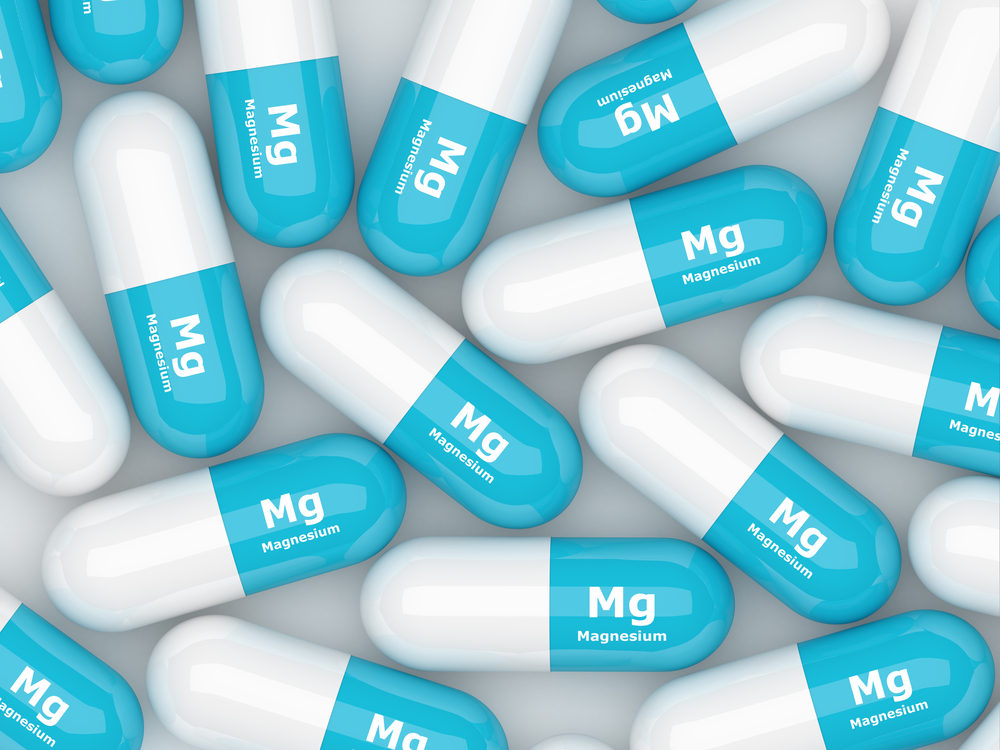The Deficiency You Probably Have (But Never Heard Of)
The Deficiency You Probably Have (But Never Heard Of)
Our Blog
The Deficiency You Probably Have (But Never Heard Of)
 Looking to live your best life? Giving your body what it needs is a crucial first step. But of all the nutrients you hear about, there’s one we rarely consider– and not having enough can have devastating effects on your health. It’s magnesium.
Looking to live your best life? Giving your body what it needs is a crucial first step. But of all the nutrients you hear about, there’s one we rarely consider– and not having enough can have devastating effects on your health. It’s magnesium.
Magnesium is an important mineral for your brain and hormonal balance. It’s the 4th most abundant mineral in the human body, and it plays several important roles to keep you feeling fabulous. However, there’s a good chance you’re deficient; most women are, even eating a well-rounded, healthy diet. Causing irregular ovulation and thyroid function, low-magnesium is associated with the root cause of larger hormonal issues like fatigue and mood swings that impact daily function.

The Tiny But Mighty Mineral:
Magnesium has some pretty important jobs. It helps with our pituitary health and without it, various hormones like FSH (follicular stimulating hormone) LH (luteinizing hormone) and TSH (thyroid stimulating hormone) are impacted. These hormones tell your endocrine system to perform at its best. It’s vital for stabilizing blood sugar, keeping your adrenal glands happy, and has anti-inflammatory properties to help combat thyroid disease.
Magnesium also calms your nervous system and prevents excessive amounts of the stress hormone, cortisol, from packing fat on your belly and tiring you out. When cortisol is balanced, your levels of progesterone, estrogen, and testosterone follow suit, helping ease PMS, PCOS, and menopausal symptoms.
And that’s not all– magnesium helps with sleep in some pretty interesting ways. By calming your body, you fall asleep more easily and stay asleep through the night. It also has been useful with chronic urination so you’re not running to the bathroom at 3 am and waking up exhausted.
 Common Signs Of Magnesium Deficiency:
Common Signs Of Magnesium Deficiency:
Most people have a magnesium deficiency, even with a healthy diet. If you’re experiencing some of these symptoms, increasing your magnesium intake may help:
- Extreme symptoms of PMS such as depression, irritability, or anxiety
- Bloating
- Fatigue, exhaustion, or insomnia
- Facial ticks or muscle cramps
- Headaches or migraines
- Chronic low sex drive
If you’re noticing any of these issues interfering with regular day-to-day life, you may need an additional supplement of magnesium for optimal health. Keep in mind, there are plenty of delicious foods that make boosting your magnesium a little more fun.
 4 Foods To Boost Magnesium:
4 Foods To Boost Magnesium:
The easiest method to increase your magnesium intake is with tasty snacks you’ll look forward to eating. Luckily, magnesium is present in some of the yummiest treats around. High-quality, organic dark chocolate, sunflower seeds, fish and leafy greens are chock-full of powerful magnesium. But, if you have gut issues or you’re already consuming these foods and still deficient, supplementation may be your best bet after a thorough consultation with your doctor. Magnesium may be one piece in a larger puzzle affecting your health.
However, many primary care physicians don’t perform thorough testing. When you call my Functional Medicine office @ 626-389-8922 or schedule a FREE health strategy call with my team, you’ll finally get to the root of what’s ailing you. Whether you’re battling hot flashes, fatigue, mood swings, low libido, weight gain or something else entirely, we’ll get you on the road to living your best life– a life where you wake up each day feeling absolutely fabulous.


